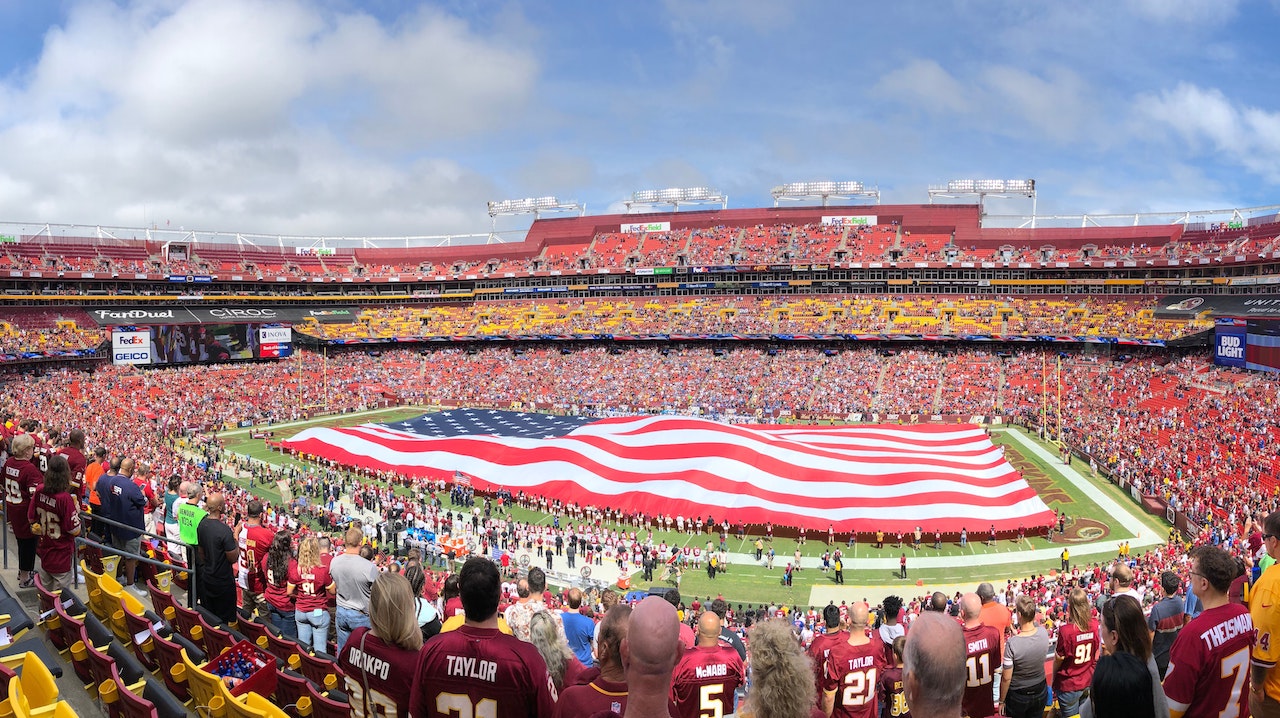What Washington’s NFL Team Name Change Means for Native Americans
An NFL team says it will, at long last, stop using a racial slur as its team name. Will that inspire other changes?

After years of pressure from advertisers, Native American activist groups, and even the U.S. Patent and Trademark Office, the Washington NFL team that used a historically anti-indigenous slur to brand themselves has pledged to retire the name and logo in a press release this morning.
“This name change is so important because it was upholding a form of oppression, a form of racism, a form of dehumanization.” – Meghanlata Gupta, Indigenizing the News
This news follows recent conversations about how cultural relics like monuments, memorials, and even team names reinforce inaccurate stereotypes and even perpetuate violence for marginalized people in the United States.
Listen: What this name change represents, how it could lead to other developments. Also, SCOTUS ruling in McGirt v. Oklahoma.
Guest
Meghanlata Gupta is the founder of Indigenizing the News, a digital news source dedicated to elevating Indigenous voices and educating non-Native allies.
Gupta urges nuance in these conversations about changing problematic figures and symbols. “What was the meaning and history behind these mascots? Is it one of pride, or one that often for Native Americans feels like violence? There’s different distinctions depending on the community,” says Gupta.
“I’m really grounding this in Black and Indigenous activism that’s going on. I’m not going to praise the team for changing the name, because who has been doing the work here?” — Meghanlata Gupta, Indigenizing the News
She says that now is a time where Black and Indigenous activists in the United States are demanding overdue change and the right to define themselves, after decades of lectures, teach-ins, and protests.
For the new name of the NFL team in Washington, “I think it’s really important, and I was also disappointed, but not surprised, that local tribal leaders and local tribal communities were not brought in for these discussions,” says Gupta. She feels it was a missed opportunity for team leadership to hear their perspectives directly.
On the recent U.S. Supreme Court decision siding in favor of the Muscogee (Creek) Nation that affirms that treaties with Native American nations are the law, Gupta praised Justice Neil Gorsuch’s opinion.
“This isn’t a single event, he’s continued to really support Indian Law in rulings in court,” says Gupta.
This article was written by Detroit Today student producer Lauryn Azu.
Trusted, accurate, up-to-date
WDET is here to keep you informed on essential information, news and resources related to COVID-19.
This is a stressful, insecure time for many. So it’s more important than ever for you, our listeners and readers, who are able to donate to keep supporting WDET’s mission. Please make a gift today.
